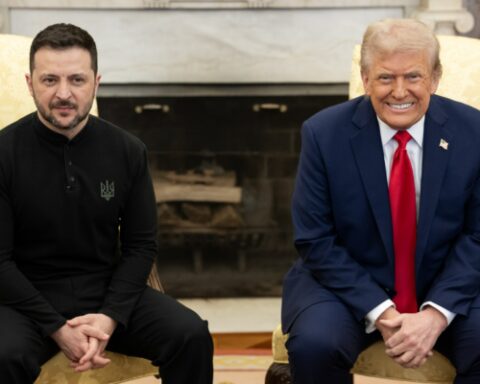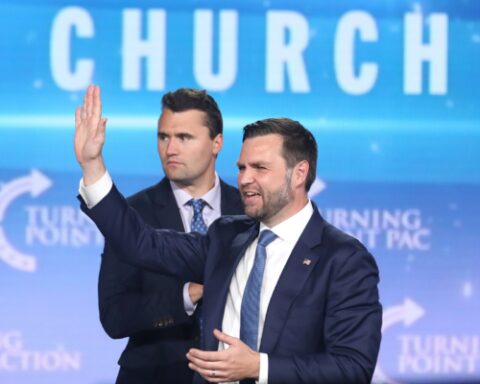Russian Foreign Minister Sergei Lavrov reportedly made clear Wednesday that Moscow will not accept any Western security guarantees for Ukraine without its participation—casting doubt on assurances that the Trump administration has described as a breakthrough in ongoing peace efforts.
Speaking at a press conference alongside Jordan’s foreign minister, Lavrov insisted that security guarantees for Ukraine could only function with Moscow’s approval, effectively nullifying their purpose against another Russian incursion. “Seriously discussing issues of ensuring security without the Russian Federation is a utopia and a path to nowhere,” Lavrov declared.
The comments stood in sharp contrast to the Trump administration’s description of the Alaska summit last week, where Russian President Vladimir Putin reportedly agreed to European and U.S. guarantees for Ukraine’s security.
The White House has not yet responded to Lavrov’s remarks.
Lavrov, who joined Putin in the Alaska talks, suggested that any new agreement should resemble Russia’s 2022 proposal during early, failed peace talks.
That plan would have given Moscow veto power over any actions by other guarantors of Ukraine’s security.
On Wednesday, he went further, demanding that China also play an equal role in any guarantee system. “We will safeguard our legitimate interests in a firm and harsh manner,” Lavrov said.
Analysts noted the significance of Moscow’s messaging. Alexander Gabuev, director of the Carnegie Russia Eurasia Center, said Russia was making it clear it would reject any settlement that was “precooked by the U.S. and Europeans.”
He added, “Moscow’s hope is that the meeting between Putin and Trump has established their personal rapport and that substantive negotiations over Ukraine will be lengthy, buying Russia time to continue pushing Ukraine on the front line.”
The stakes are high given Russia’s history of disregarding international commitments. Moscow was a party to the 1994 Budapest Memorandum, in which it pledged to respect Ukraine’s sovereignty in exchange for Kyiv relinquishing its nuclear arsenal.
It broke those commitments with its 2022 invasion, as well as its violations of the 2015 Minsk agreements.
Even so, the Trump administration portrayed Putin’s supposed agreement in Alaska as a diplomatic win. After meeting with Ukrainian President Volodymyr Zelensky in Washington, Trump said he was open to U.S. military support for European troops who might be stationed in Ukraine after a peace deal.
On Tuesday, Trump emphasized that the U.S. is prepared to provide air power if necessary. “When it comes to security, they are willing to put people on the ground,” Trump said of European allies. “We’re willing to help them with things, especially probably, if you talk about by air, because there is nobody has the kind of stuff we have.”
The guarantees are intended to strengthen Ukraine’s hand in accepting difficult concessions to Putin. Whether Lavrov’s remarks mean Russia is retreating from Alaska understandings—or that Washington misinterpreted them—remains uncertain.
Putin himself only vaguely acknowledged in Alaska that Ukraine’s security “needed to be assured.”
The White House has said Putin promised to meet directly with Zelensky, though Moscow has yet to confirm. Lavrov said only that Putin would raise the level of talks and expand them to political issues, adding that any summit with Zelensky would require “thorough preparation.”
For his part, Zelensky insisted Monday he was ready to meet. “We are ready for any formats at the level of leaders, because only at the level of leaders can we resolve all those complex, painful issues,” he said.
Yet Putin continues to dismiss Zelensky as a Western puppet and has questioned his authority to sign any settlement. Lavrov reiterated that removing the “root causes” of the war would require addressing the 2014 rise of what he called the “Kyiv regime” and what he alleged was the “extermination of all Russian and Russian-speaking population on Ukrainian territory.”
[READ MORE: Hamas Agrees to Temporary Cease-Fire as Israel Presses Forward in Gaza]









